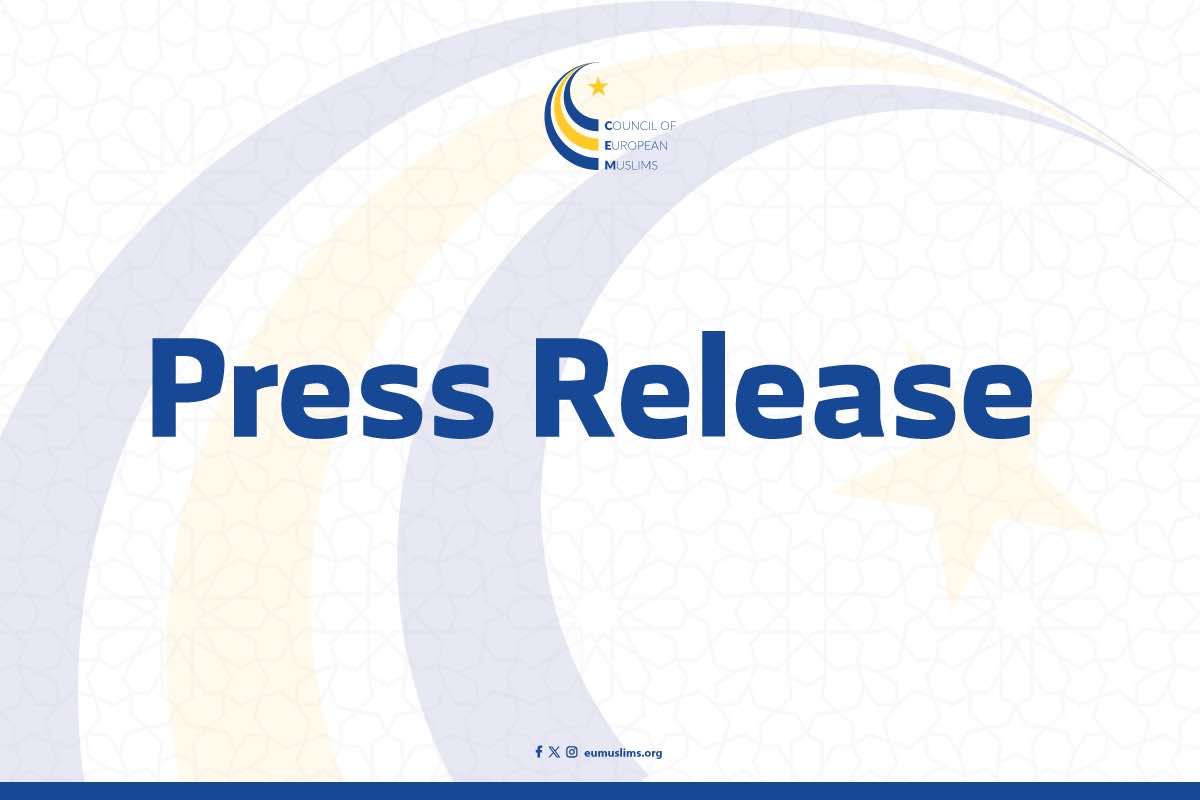
The Council of European Muslims expresses deep concern over the French government’s recent report, “The Muslim Brotherhood and Political Islam in France,” which has drawn considerable attention across public, political, and academic spheres.
The Council firmly rejects the report’s misleading, alarmist, and divisive tone, particularly its defamatory portrayal of numerous Islamic institutions and associations that play a vital role in French and European civil society. These include the Council itself, its French member organisation “Musulmans de France”, and other affiliated bodies. When placed in broader European context, this report reflects a pattern of similar narratives emerging in other countries.
Concerns over the Report’s Approach:
The report relies heavily on security-focused think tanks and conservative lobbying groups, without the necessary balance of sociological or political science perspectives. This has resulted in a securitised framing of the issue, further underlined by the report’s association with the French National Security Council.
It also levies contradictory accusations, such as blaming institutions for “infiltration” while previously accusing them of “isolationism.” This inconsistency raises serious questions: what standards are Muslim institutions expected to meet in order to be treated fairly?
Furthermore, the report conflates Islam as a religion with the political ideologies or practices of specific groups. This blurring of lines not only misrepresents Muslim communities, but also feeds harmful public discourse and media coverage, leading to further marginalisation and mistrust.
Clarification Regarding the Council:
The Council of European Muslims reiterates that it is a fully independent European institution, operating strictly within European legal and social frameworks. It has no organisational or administrative links to external movements such as the Muslim Brotherhood in Arab countries, which the report repeatedly references.
Islam is a faith shared by nearly two billion people globally, including millions of Muslims in Europe. The attempt to equate peaceful religious engagement with subversive political agendas is both inaccurate and unjust.
Among the false claims is the allegation that the Council’s chairman, Mr Abdullah Ben Mansour, is a member of the Global Guidance Council of the Muslim Brotherhood. This is categorically untrue. The Council will pursue all legal and legitimate avenues to respond to these unfounded accusations, which risk harming individuals and institutions alike.
Call for Responsible Dialogue:
The Council remains committed to promoting responsible citizenship. It encourages its members, individuals and organisations alike to contribute positively to society. This is not an effort to “Islamise” society, but a natural expression of their role as active citizens dedicated to social progress and cohesion.
We call for a calm, respectful, and inclusive societal dialogue that upholds the common good and peaceful coexistence. Such dialogue must also respect the religious identity and practices of Muslims in Europe. The Council and its member institutions stand ready to participate constructively in any sincere effort to build mutual understanding and trust.
Council of European Muslims
Brussels, 25 May 2025
